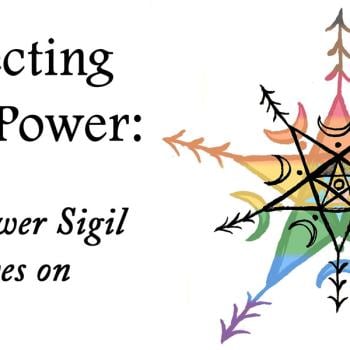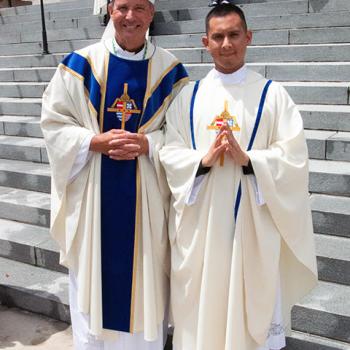Advent is not a time for the faint-hearted preacher. Time seems to accelerate. The brief and gentle Thanksgiving respite gives way to the mad dash toward Christmas. As pastors, we often find ourselves chasing our tails as we try to integrate extra pastoral visits to shut-ins, more elaborate worship services, and the challenge of preaching the Advent texts.
Between Advent and Christmas Eve, we anticipate visitors as well as the return of erstwhile members, and we want to be our best in the pulpit. No wonder pastoral stress increases during the Advent season. We have so much to do and so little time. The stress of time is not only related to the many tasks of ministry but the realities of family life in the Advent/Christmas season. As pastors, we have to live in the tension between the now and not-yet in our own lives and in the world. We have Christmas shopping to do, our spouses and partners want our companionship and help in preparing for Christmas, and even for the extroverts, the round of parties and socials can be draining, not only in terms of the programs and dinners at church but meals and celebrations among our friends. Unless we're mindful, we're liable to put on five pounds during the Advent/Christmas revels and feel the depressive feeling of too much sugar and alcohol in our systems. Christmas Eve brings out the crowds at church, but after services, we may return bone weary to our own Christmas visitors at home or hop in the car for a long drive to relatives.
Preaching is a holistic endeavor. It not only involves the preacher's mind, but also her or his spirit, emotions, relationships, and physical well-being. How we live the Advent season will shape our sermons, liturgies, pastoral care, family lives, and relationships. While it is easy to breeze through the holidays without much reflection -- simply trying to keep up with the demands of the season -- I believe that God calls us to be mindful in the moment and to nurture our spiritual lives as preachers even in the busiest season of the year.
Advent is all about time -- theologically, spiritually, and in the living of our days.
Theologically, Advent describes the coming reign of God, God's shalom in the world and in our lives. The prophets and the gospels speak of a coming time of planetary wholeness, the Messianic age, in which we will dwell in God's peaceable realm. And, we're still waiting for the coming of that realm of peace, living in the "time being" as W.H. Auden notes in his Christmas Oratorio.
Spiritually, Advent is a season of preparation, of opening our hearts to the embodiment of God's vision for history, creation, and human life as well as the coming of the Christ-child. Like our congregants, we may ourselves struggle with the now and now-yet as we hold off on singing Christmas carols in church until the Christmas Eve service. Everyone else is singing carols -- in the mall, on the radio, on television Christmas specials, but the church is quiet, chanting the hymns of patience and hope. Like our congregants, we may grow tired of waiting; we also "need a little Christmas." We need a moment of celebration amid the busyness of the season.
Advent can be a time of anxiety, but it can also be a time of spiritual adventure as we live into the season as spiritually well-nourished preachers. This is a matter of intentionality as we embrace the contemplative spirit of Advent. As we sing hymns of expectation and preparation, we also need to take time for contemplation in a world of action, as Thomas Merton suggests. When the times are busiest, we need to take extra time for prayer, not just "drive-by prayers," although moment-by-moment prayers are essential to spiritual growth and effective ministry. We need intentional times of stillness amid the many tasks of ministry during Advent. We need to be still as we experience the birthing process in ourselves and the world.
While no pastor can take a full-blown retreat during Advent, let me suggest some times for spiritually centering during most busy season. Our spiritual practices will calm our hearts and give gravitas and insight to our sermons. First, take time to make your sermon preparation a spiritual practice. Read the scriptures prayerfully in the spirit of lectio divina, or "holy reading," the Benedictine spiritual practice of listening for God's personal word to us in the words of scripture. Take time for a walk, enjoying not only the cool winter air and lively moments that often inspire creative ways of looking at things. Take a mini-retreat, perhaps, for a few hours the Saturday after Thanksgiving, and then each Saturday (or whatever day works best for you during Advent). Ironically, when we take time for prayer and spiritual nurture, we discover we have more time for what's important in ministry. Our sermons become more effortless because we are assessing God's movements in our lives. (In the weeks ahead, I will share a number of spiritual practices aimed at nurturing your preaching and pastoral ministry.)





